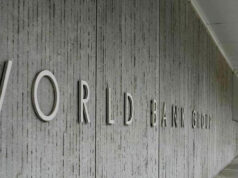FINANCE Secretary Carlos G. Dominguez III said perks given to Real Estate Investment Trusts (REIT) may not be generating an adequate return for the government, and added that the incentives given to the sector are under review.

“This is my problem… We are giving people a big tax break. What do we get in return? Are we sure that the money that they will be getting tax-free will really be reinvested here? Or will it be invested in foreign shares or something else?” Mr. Dominguez III told reporters at the Department of Finance headquarters on Monday.
Mr. Dominguez said that he wants to make sure that investor profits from tax-free asset transfers under the REIT will not be taken out of the Philippines.
“What the REIT law said, if you create an REIT, whatever transaction you have to transfer the property is VAT (value-added tax) free right? That’s fine. The theory is that the money that will… be reinvested,” he said.
“But how do I know that? How do I know that the tax break will actually generate money that is reinvested here and not brought abroad. We have hardly any control here over investing (the funds) abroad,” he added.
REITs promote the development of the capital market by expanding the participation of the investing public in real estate development including residential projects, hotels, hospitals, malls, power plants and even toll roads.
“I just want to make sure that that money is indeed reinvested in productive enterprises so that they make more jobs. So that’s what they should be thinking about. You are giving somebody a tax break in exchange for what?”
“Its not the government, the money belongs to the people. We are only custodians. We are going to be asking the public to give up so much.”
The REIT Act was signed into law in 2009, and the bourse has long been seeking the amendment of its implementing rules and regulations, as current rules discourage property developers from establishing trusts.
The REIT rules have conflicting provisions, particularly on the minimum public float requirements and taxation on property transfers.
The law states that one third of the investment trust should be publicly owned, while the implementing rules and regulations mandates 40% for the first two years and at least two-thirds thereafter. The government also subjected the transfer of assets into REITs to tax and levies a 12% rate on additional income generated, while the law considers them to be tax-free.
House members last week gave the Finance department two months to come up with amendments to address these issues. — Elijah Joseph C. Tubayan



